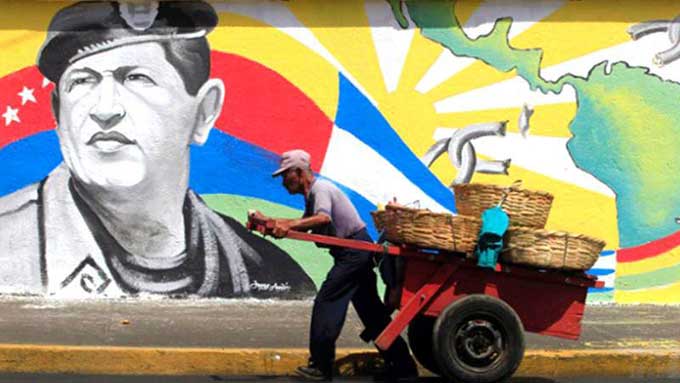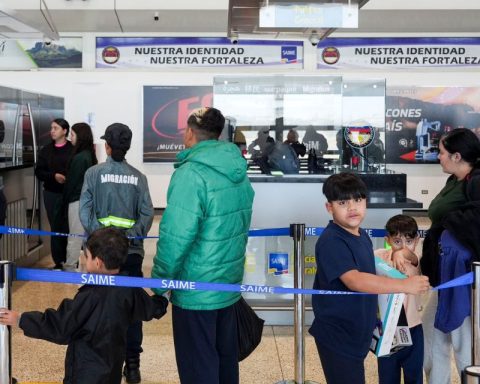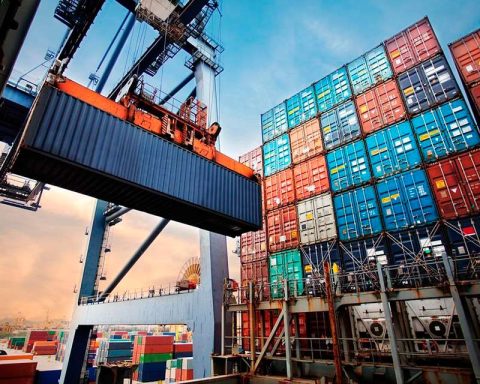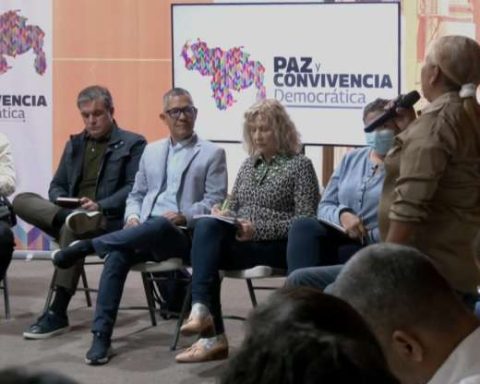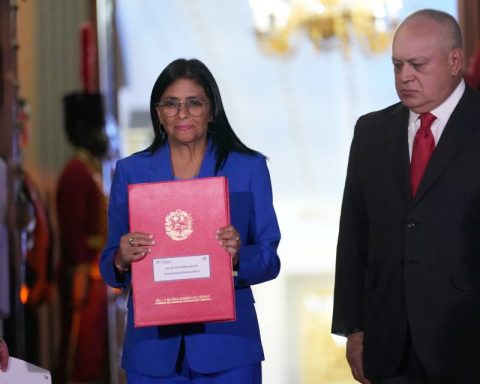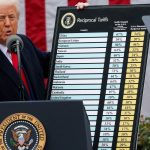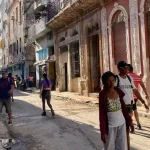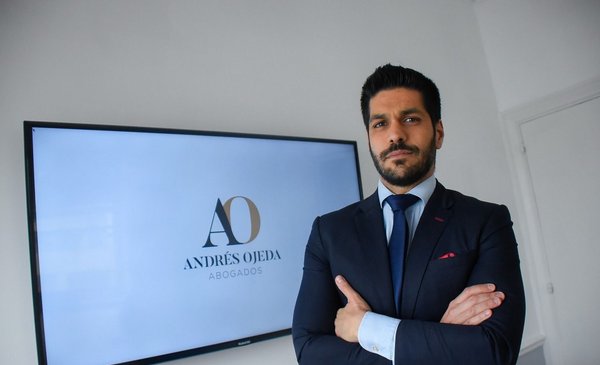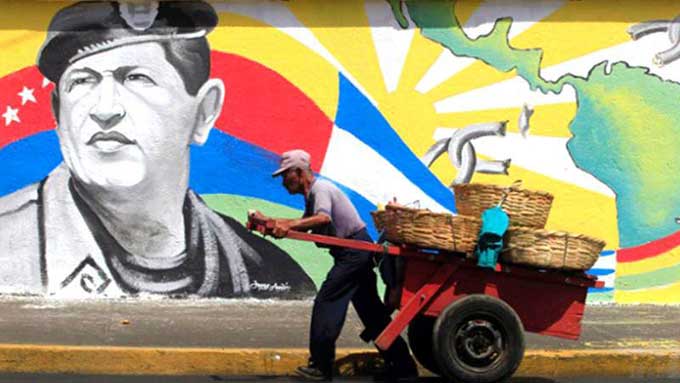
Three elements motivate the following reflections. First, the illusion that, with the response of some activities to the liberalization of prices and the foreign exchange market, we are witnessing a process of “normalization” of the country. Second, the recently published letter, signed by 25 members of Venezuelan civil society, whose most controversial aspect is the call on the President of the United States, Joe Biden, to reconsider the sanctions imposed on Venezuela. And third, the verification that, in the face of the two previous elements, the democratic forces do not share any clear policy, an important absence given the opportunity to evict Maduro from power in the 2024 elections.
First, the Venezuelan economy, indeed, shows signs that it stopped contracting last year, although there are no official figures on the matter. Does it mean that, after so many years of criminal destruction, the country is starting to get back to normal? It depends, of course, on what is meant by “normality”. For some, the drastic reduction in inflation, the proliferation of shops with imported products (bodegones), the supply of supermarkets and the activation of some constructions in the east of Caracas, are criteria that they satisfy. But the benefits of such “normality” are enjoyed by those sectors (minority) with sufficient income in foreign currency or – when not – those “plugged in” in different businesses with the government. Apparently, they are not affected by insecurity or do not care. But, when reviewing the results of the Living Conditions Survey carried out by the UCAB in 2021, the evidence of poverty, hunger, insufficiencies in the provision of health services and other calamities that torment the vast majority of Venezuelans are striking. More than 94% of households are poor, measured by their income, and Venezuela exhibits one of the greatest inequities in terms of income distribution in Latin America. Furthermore, the collapse of the State is reflected in its notorious inability to ensure the provision of basic public services: water, electricity, health, education, security and transportation. In the country that claims to have the largest oil reserves and was once the largest exporter of this hydrocarbon, even gasoline is scarce.
A slight growth is not enough to speak of “normality”. What is truly abnormal is that the Venezuelan economy has been falling, in fits and starts, for seven consecutive years. And, as a recent tweet warned, when an economy has shrunk by 80%, getting back to its previous level means growing by 400%! There can be no “normality” in the absence of basic guarantees for the fundamental rights of the population, among them, political association, protest demanding decent living conditions, free media, not to mention the basic rights to health. , to safety and to life itself. Venezuela exhibits one of the highest homicide rates in the world, many at the hands of “public forces”, there are 240 political prisoners and more than 6 million migrants seeking better living conditions. The basic guarantees will not exist until a rule of law is restored that enforces the constitutional order and the laws derived from it. This disappeared, not by chance or fortuitous events, but as a result of a deliberate process of dismantling democratic institutions and those associated with the functioning of a mercantile economy, by a clique that, in the name of a supposed “revolution”, the country was taken for its exclusive usufruct, depredating it until it was drained of blood.
Then there is the “letter of the 25” signed, among others, by friends who deserve my greatest respect, both for their history of fighting for freedom and justice or for their professional performance. Unfortunately, they have been the object of unacceptable disqualifications by those who arrogate to themselves the right to pontificate about who is or is not an “authentic” opponent, in total opposition to the values of tolerance and respect for the right to express opinions of others that, supposedly, they animate the project of liberal democracy with which they identify. Without going into further details, I believe that the “sin” committed by the signatories lies in proposing to President Biden the lifting of some sanctions, arguing that they have not fulfilled their purposes and that, despite blaming the disastrous management of Maduro and Chávez the main cause of the misery situation, they have worsened it. It is highly debatable that the sanctions have had no effect on the government. While they have not forced the expected political change, by themselves and with a weak and divided opposition, this was too much to ask. Although it is not easy to prove it, it can be argued that the incipient economic liberalization is, precisely, a forced response to the restrictions associated with the sanctions. Further, there is the ineffective attempt to make up appearances in the face of the CPI’s investigations into the government’s responsibilities in the face of the violation of the human rights of many Venezuelans. The mafia clique that controls the state is interested in nullifying the threat of greater sanctions. There must be a reason.
But perhaps the most debatable aspect is to think that, if some sanctions are lifted – those, presumably, that affect oil exports – it will alleviate the situation of misery suffered by the vast majority of compatriots. It so happens that, for the first quarter of this year (2022), revenues from oil exports were between 2.5 and 3 billion dollars higher than those of the first quarter of 2021, as a result of the rise in prices attributable to the sanctions against the Russian crude oil sales and increases in domestic production. Where did those real ones go? Are there visible improvements in services, in employment, in people’s purchasing power? Because the decreed increase in salaries is going to be financed, to a large extent, with monetary issue. Ergo, greater inflationary pressure and an eventual “liquefaction” of these increases are anticipated. Where do we suspect additional revenue may go if sanctions are lifted? The “spill-over” effect on the well-being of the population with higher external income is very low, for the simple reason that the leitmotif of those in power is to keep what comes in. Based on this, they have dismantled the institutions that regulate public affairs, among others autonomy and balance of powers (independent supervision of spending), transparency and accountability of their management, and respect for the rule of law with regard to to the rights and freedoms of Venezuelans, including guarantees for private initiative. Without recovering the corresponding institutional framework, there will be little improvement in the living conditions of the majority that we can expect. And hence the importance of lifting the sanctions as a negotiating weapon that forces such an end, conditional on concrete, verifiable progress in that direction. On the contrary, to suppose that, by lifting them first, Maduro will introduce political reforms in return, would be, as the critics say, to put the cart before the horse.
And, finally, how to achieve changes that lead to the release of political prisoners, the restitution of guarantees, the observance of the rule of law and reliable national elections, by those who are interested in maintaining the conditions based on which Have they been able to plunder the riches of the country at will? In the current state of weakness, division and confusion of the opposing forces, it seems implausible. Without a clear national policy that unites, strengthens and mobilizes the opposition majority, we will have to waste the opportunities for change presented by the 2024 elections. Likewise, without an effective strategy, the pressure of sanctions can bear little fruit. . A basic element is to take advantage of the rearrangements to which Maduro has been forced to articulate actions focused on the expansion and consolidation of the liberalization that has begun, and to face the arbitrariness that will occur. This should connect with the new leadership that emerges from the protest struggle, to demand public services or that manifested itself in the recent conquests of some mayors at the national level. Furthermore, the recovery of a reliable institutional framework, capable of raising large loans from multilaterals, will be able to clean up the State so that it can produce the public goods that the population requires and will be able to attract investments capable of taking advantage of the enormous potential of our economy. Without it, it will be difficult to achieve the welfare conditions to which Venezuelans aspire and are entitled. Without these conquests, the famished recovery with which Maduro boasts of his “improvements” will take endless decades to get us out of misery. Making this policy a flag for change is, therefore, a desideratum.
